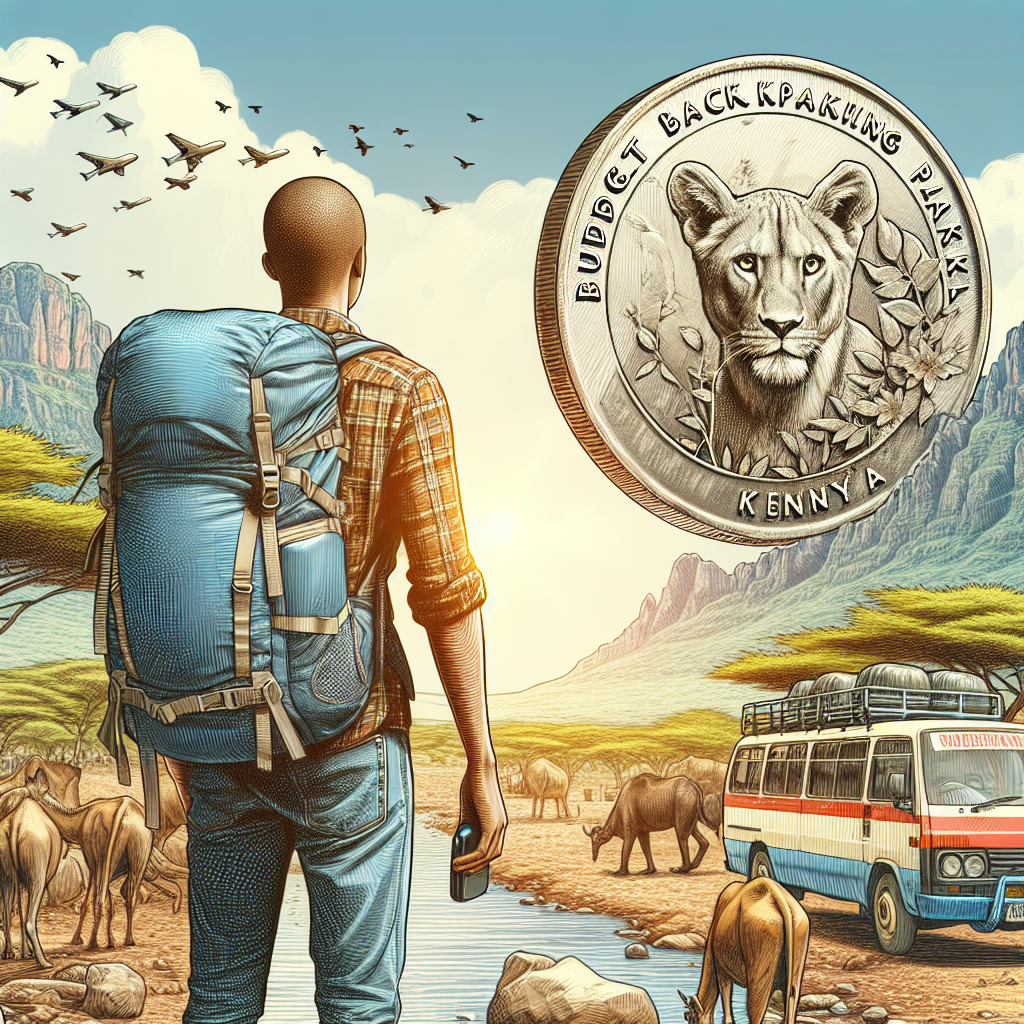Backpacking Kenya on a Budget: An Ultimate Guide for Thrifty Travelers
Kenya, a country where savannahs rich with wildlife meet azure beaches, is a dream destination for many travelers. From the bustling streets of Nairobi to the tranquil shores of Diani, Kenya offers an array of experiences that cater to every kind of adventurer. However, exploring this East African gem doesn’t have to break the bank. With the right tips and tricks, backpacking Kenya on a budget is not only possible but also an incredibly rewarding experience. Here’s how thrifty travelers can make the most out of their Kenyan adventure.
Planning Your Trip
1. Travel Off-Peak: Like many popular destinations, Kenya has its high and low seasons. The peak seasons typically align with the dry months from July to September and December to February when wildlife viewing is at its best. Traveling just before or after these months can significantly reduce costs, as accommodation prices drop and parks are less crowded.
2. Budget Airlines and Public Transportation: International flights to Kenya can be pricey, but booking in advance and being flexible with your dates can lead to significant savings. Once in Kenya, embrace matatus (public minibusses) and long-distance buses for intercity travel. They are not only affordable but also offer a genuine Kenyan experience.
3. Volunteer or Work Exchange: Many backpackers extend their stay in Kenya through volunteering or work exchange programs. This can dramatically reduce living costs and offer deeper insights into Kenyan culture and communities.
Affordable Accommodation
1. Hostels and Guesthouses: Kenya boasts a variety of budget-friendly accommodations. Hostels, guesthouses, and camping are prevalent, especially in tourist areas like Nairobi, Mombasa, and around national parks. Booking platforms like Hostelworld and Airbnb are great tools for finding the best deals.
2. Couchsurfing: For the most budget-conscious travelers, Couchsurfing offers a unique opportunity to stay with locals for free. This platform is also a fantastic way to meet locals and expats who can share invaluable travel tips.
Eating on a Budget
Kenyan cuisine is rich, diverse, and, most importantly, affordable. Street food and local eateries (often referred to as “hotels”) offer delicious options for under $2. Staples include Ugali (cornmeal porridge), Nyama Choma (roasted meat), and Sukuma Wiki (collard greens). For those willing to explore, these local dishes provide a cheap yet authentic culinary experience.
Exploring on a Budget
1. National Parks and Reserves: While safaris are a major draw for visitors, they can be expensive. Opt for less-visited parks like Hell’s Gate, where entry fees are lower, and you can rent a bike to explore the park independently, reducing costs.
2. Beaches: Kenya’s coastline is stunning and free to explore. Places like Diani Beach offer the quintessential beach experience without the hefty price tag of private beach resorts.
3. Cultural Experiences: Engage with local communities through cultural tours in villages or markets. These experiences are often more affordable and enriching than commercial tours.
4. Hiking and Outdoor Activities: Kenya’s landscapes are ideal for outdoor enthusiasts. Hiking Mt. Longonot or exploring the Kerio Valley offers breathtaking experiences at a fraction of the cost of organized tours.
Saving Money on the Go
1. Bargain: Bargaining is part of the culture in Kenyan markets. Whether you’re buying souvenirs or fresh produce, don’t be afraid to negotiate.
2. Local SIM Card: International roaming fees can add up quickly. Purchasing a local SIM card for your phone can save you money and keep you connected.
3. Travel Insurance: While it may seem counterintuitive when trying to save money, having travel insurance can actually prevent unforeseen expenses due to medical emergencies or lost belongings.
Recreating the Experience or FAQ
How can I recreate the Kenyan backpacking experience at home?
While it’s challenging to fully replicate the vibrancy and diversity of Kenya, immersing yourself in Kenyan culture through cuisine, music, and literature can bring a piece of Kenya to you. Cooking traditional dishes like Ugali and Sukuma Wiki, listening to popular Kenyan music, or reading books by Kenyan authors are all ways to experience the essence of Kenya from afar.
FAQ
1. Is Kenya safe for backpackers?
Yes, Kenya is generally safe for backpackers, but like any destination, it’s essential to take standard safety precautions. Avoid walking alone at night, keep valuables secure, and stay informed about the areas you plan to visit.
2. What is the best way to get around Kenya on a budget?
Public transportation, including matatus and buses, is the most affordable way to travel long distances in Kenya. For shorter distances within cities or towns, motorcycle taxis known as “boda-bodas” can be cost-effective but negotiate the fare in advance.
3. Can I visit the Maasai Mara on a budget?
Visiting the Maasai Mara on a tight budget is challenging but not impossible. Consider joining a group safari to split costs or visit during the off-peak season for better deals on tours and accommodation.
4. What should I pack for backpacking in Kenya?
Essentials include lightweight clothing for hot days, a warm jacket for cooler evenings, comfortable walking shoes, a reusable water bottle, sunscreen, and a good hat. Don’t forget a quality camera or smartphone for capturing your adventures.
Backpacking Kenya on a budget is an adventure that offers an authentic and immersive experience into the heart of Africa. With careful planning, flexibility, and an open mind, thrifty travelers can explore the breathtaking landscapes, rich cultures, and diverse wildlife of Kenya without spending a fortune. Whether you’re wandering through the bustling markets, savoring local dishes, or marveling at wildlife, Kenya promises an unforgettable journey for every backpacker.
